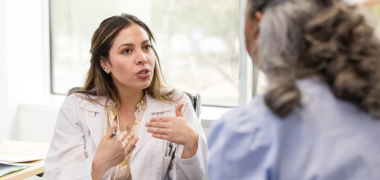
This role has a high level of AI exposure. While some human skills are required, many tasks could be automated or replaced by new technology.
Explore all careersA Clinical Researcher advances medical science by designing and managing clinical trials, collaborating with stakeholders to ensure ethical compliance.
Get qualified to work as a Clinical Researcher with a course recognised across Australia. Speak to a training provider to learn more.









Browse occupations related to Clinical Researcher



For individuals seeking to advance their career in the healthcare field, Clinical Researcher courses in Melbourne present an exceptional opportunity. With five advanced courses available, Melbourne features leading institutions such as The University of Melbourne, VU, Deakin University, and Monash University. Each of these training providers offers courses tailored for experienced learners, ensuring they gain the knowledge and skills essential for success in clinical research.
One of the highlighted offerings is the Bachelor of Science (Biology), perfect for those looking to delve deeper into the biological sciences. Similarly, the Master of Biomedical Science and the Master of Applied Psychology (Clinical Psychology) prepare students for advanced roles in clinical settings. Through these courses, learners will acquire the practical skills necessary to excel as a Clinical Researcher in a vibrant hub like Melbourne.
Additionally, prospective students might be interested in exploring other programs such as the Bachelor of Biomedical Science and the Bachelor of Science (Pharmacology). These degrees provide robust foundations in the medical field, opening doors to numerous career opportunities. Moreover, graduates may find themselves well-prepared for various job roles, such as a Medical Laboratory Technician or a Pathologist, both critical components of the healthcare sector.
Furthermore, pursuing Clinical Researcher courses in Melbourne can lead to diverse career paths. Individuals may consider roles like Clinical Research Coordinator or Medical Scientist, both of which are vital in conducting clinical trials and ensuring proper data analysis. By enrolling in these courses, students not only enhance their qualifications but also contribute vital knowledge to the ever-evolving medical landscape.
To explore the exciting possibilities within the healthcare field, consider investigating Healthcare courses or furthering your study in Pathology. The Clinical Researcher courses in Melbourne stand as a gateway to impactful careers focused on improving patient outcomes and contributing to groundbreaking medical research. By studying at prestigious institutions across Melbourne, students will be well-equipped to thrive in this dynamic and rewarding industry.